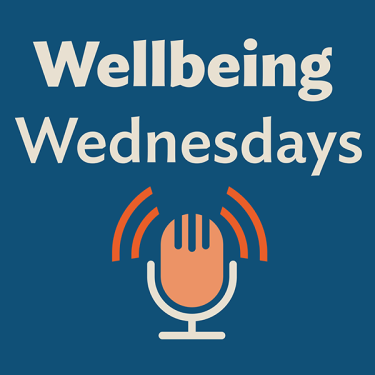During the Act With Hope webinar series, peer support professionals discussed concrete strategies to strengthen the role of peer support in recovery, grief processing, clinical integration and remote work. Across this insightful four-part series, we heard these expert voices share their wisdom firsthand.
Peer support professionals bring lived experience, empathy and advocacy to behavioral health systems. We’re excited to highlight the key takeaways from the webinar series, along with steps to help peer professionals, supervisors and behavioral health leaders strengthen and expand this vital role.
1. Education Is the Foundation: Know the Right Tool for the Job
“We generally know what peer recovery specialists do. We generally know what they don’t do. … But do they specifically know what we do and what we really don’t do?”
— Dwayne Dean, RCPF, CPRS, RPS, ICPR (panelist, Maryland)
Organizations often misunderstand peer roles, leading to “role drift” — in which peers are asked to do clinical or case management tasks they’re not trained for. Peers bear witness, meet people where they are, offer alternative perspectives and broker resources. They don’t do clinical assessments, set treatment plans or provide coercive crisis response. Dwayne Dean illustrated this with a metaphor: Just as using the right approach matters in any craft — a wrench works perfectly for a bolt, but pliers will strip the threads and cause damage over time — applying clinical methods to peer support roles causes similar harm, even when well-intentioned.
Action Steps
- Train all staff on peer roles.
- Create clear role descriptions that distinguish peer from clinical services.
- Use peer-specific supervision that focuses on advocacy and mentoring.
2. Integrate Peers as Equal Team Members, Not Add-ons
“Do your homework on the front end before you even bring your team of peers into your organization. You need that organizational buy-in.”
— Tammy Stewart, MEd, LCPC (panelist, Illinois)
True integration means peers have a full seat at the table, with the same rights and voice in organizational decisions, rather than being brought in as an afterthought. Without intentional structures, peers can be left to self-advocate in systems that aren’t designed to fully support their role.
Action Steps
- Include peers in team meetings and case reviews as full participants.
- Ensure peers receive the same benefits and advancement opportunities.
- Ask peers what they need directly.
- Create peer-led advisory boards for program development.
3. Address Grief and Trauma as Core Components
“Grief is not just death loss; it’s the natural human response to any loss … and we can be both wounded and wise.”
— Jenn Jones, PRSS (panelist, Tennessee)
Peer work involves significant emotional labor. Grief can occur due to death loss, moral injury from organizational failures, ambiguous loss and the collective community mourning that peer workers regularly encounter.
Action Steps
- Provide grief education and trauma-informed training.
- Create spaces for peers to process difficult cases.
- Establish peer support circles for frontline workers.
- Allow flexible scheduling for self-care.
- Normalize emotional responses.
4. Bring Responsive Services Into the Community
“We can’t meet the community where they are without knowing where they are.”
— Jose Martinez (panelist, New York)
Effective peer support must be rooted in and designed by the communities it serves. Community-based services are more accessible, trusted and effective than services in traditional clinical settings because they meet people in familiar environments where they live, work and socialize.
Action Steps
- Establish services in locations like community centers, libraries or local gathering spaces rather than clinical facilities.
- Conduct community focus groups to understand specific local needs before designing programs.
- Hire peers from the communities they will serve.
- Create drop-in centers and recovery community centers that are run by peers.
- Develop mobile outreach teams that go directly into neighborhoods during times that work for community members, rather than traditional business hours.
5. Create Sustainable Virtual Support Models
“Struggles with unfamiliar platforms, glitchy tech and lack of experience should not be barriers for peers getting these jobs and working virtually.”
— Meghan Hetfield, PRSS, CRPA, CARC (panelist, New York)
Virtual peer support requires intentional design that maintains connection and prevents isolation while providing new opportunities for accessibility and engagement. This includes normalizing “camera-off” options for meetings, offering training and streamlining communications to avoid burnout.
Action Steps
- Provide technology training for peers and clients.
- Create anonymous feedback systems to protect peers’ privacy.
- Offer coworking sessions for administrative tasks.
- Use walk-and-talk phone sessions, when appropriate.
- Provide separate work devices to set work-life boundaries.
6. Understand Recovery as a Long-term Process
“Recovery really implies the presence of health and the presence of wellbeing. … This is a paradigm shift.” — Corrie Vilsaint, PhD (panelist, Massachusetts)
Recovery is more than duration or absence of substance use. It includes quality of life, recovery capital, self-esteem and psychological wellbeing that develop over time.
Action Steps
- Implement comprehensive onboarding with 12-month certification pathways.
- Provide weekly individual and group supervision.
- Reduce productivity expectations during training periods.
- Offer mentorship programs and celebrate credential achievements.
7. Guard Against Compassion Fatigue
“Supporting others, for me, has really started with supporting myself and naming it: I am in deep grief. I am showing up messy because I’m mad, and I’m grieving, and I’m upset, and I’m tired of burying my friends.”
— Gina Malagold, PhD (panelist, Washington, D.C.)
Frontline peer professionals often carry the emotional toll of repeated loss in recovery communities. Peers need spaces to process their own grief, including opportunities to create ritual, narrative and purpose.
Action Steps
- Incorporate storytelling, group check-ins and reflective practices into supervision.
- Validate grief as an occupational reality and not a private burden.
8. Take Advantage of Technology
“Peer Recovery Support Specialists, coaches, advocates. We are Recovery Ubers. We meet people where they are. And we take them where they want to go.”
— Pablo Hurtado, DSW, LMSW (panelist, New York)
Modern peer support must adapt to technological advances while maintaining the core human connection that makes peer support effective. Technology can expand access and create new forms of support, but it must be implemented intentionally to preserve the relational foundation of peer work.
Action Steps
- Thoughtfully integrate telehealth capabilities.
- Maintain trauma-informed communication in virtual settings.
- Provide technology support for both peers and clients.
- Establish protocols for crisis intervention in virtual settings.
- Create hybrid service models that combine in-person and virtual support.
By following these takeaways, organizations can build peer support programs that honor the expertise of lived experience while creating sustainable, effective services that meet communities where they are.




